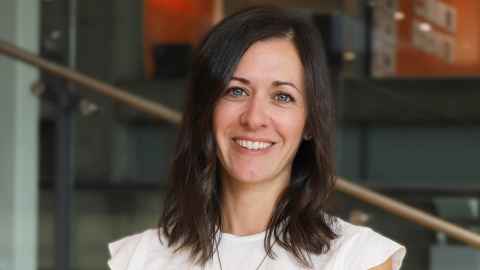Diversity crisis in software industry to be investigated
28 October 2022
An in-depth investigation of the “diversity crisis” in the software industry will be led by a software engineer from Waipapa Taumata Rau, University of Auckland.

“Despite the recent push to increase gender diversity, software engineering jobs remain dominated by men,” says Dr Kelly Blincoe, a senior lecturer in the Department of Electrical, Computer and Software Engineering in the Faculty of Engineering.
Investigating how to retain women in software engineering will be a key focus of her five-year, $800,000 Rutherford Discovery Fellowship announced on 27 October 2022.
“Women represent less than 25 percent of software engineers at companies like Google and Facebook and New Zealand has a similar problem, with less than a quarter of software jobs held by women,” says Dr Blincoe. “There’s a diversity crisis.”
The former Lockheed Martin software engineer does her bit to encourage young women, speaking at Auckland schools such as Long Bay College and university recruitment events.
However, efforts to increase the pipeline collide with women exiting the industry at what Dr Blincoe calls alarming rates.
“Women leave the industry at twice the rate as men, with 29 percent exiting in their first five years,” she says, citing The Diversity Agenda.
“In my own research, I found that among those who do stay, career satisfaction plummets after their first few years.”
The study will follow 200 New Zealand university graduates through their first five years in the software industry, the period when many women become dissatisfied and exit. Researchers will look at both people’s experiences and how industry practices and tools could be modified.
“Last year, the New Zealand government released a draft digital strategy where inclusion was an overarching goal, but the focus was on access to technology, which is an important first step but not enough,” says Dr Blincoe. “There was no acknowledgement of the lack of diversity in the software industry, how this would be addressed, or its impact on the software products the industry creates.”
She’s optimistic that the research will aid New Zealand’s digital transformation and progress towards a more inclusive software industry.
Royal Society Te Apārangi manages the Rutherford Discovery Fellowship programme on behalf of the government.
Media contact
Paul Panckhurst | media adviser
M: 022 032 8475
E: paul.panckhurst@auckland.ac.nz